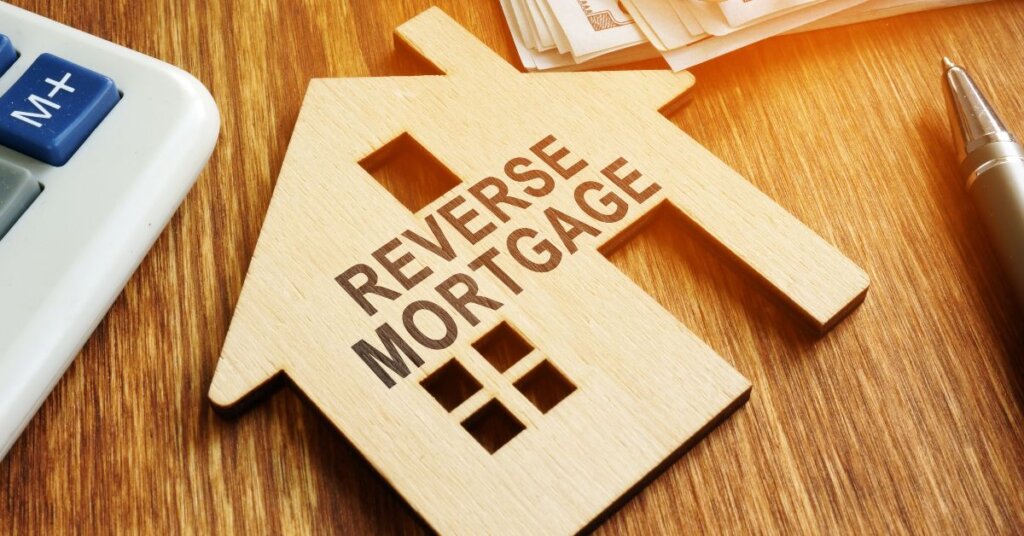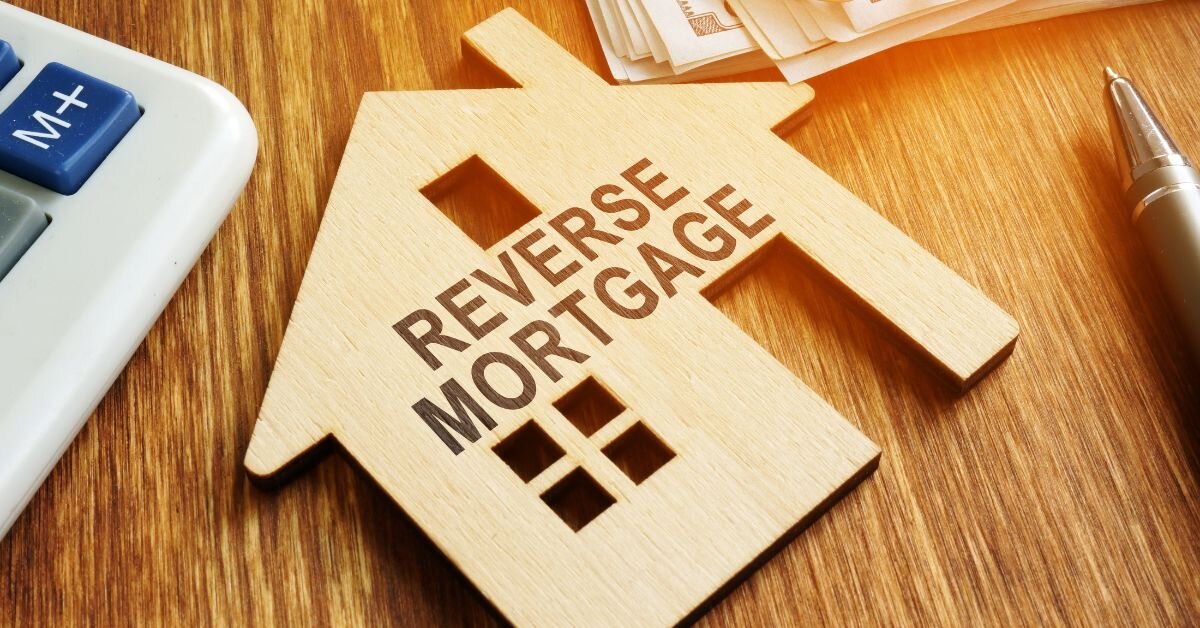
Selling a house with a reverse mortgage can feel like a daunting task, especially if you’re navigating it for the first time. A reverse mortgage allows homeowners to borrow against their home’s equity without making monthly payments, but when it comes time to sell, the process becomes more complex. Homeowners in Fremont, CA, often find themselves in situations where they need to sell their house with a reverse mortgage—whether due to financial struggles, downsizing, or relocating. Understanding the steps and challenges involved is key to making the process smoother. This guide will break down the necessary steps, explain the unique rules in California, and provide strategies to help you sell efficiently while avoiding unnecessary stress.
What Is a Reverse Mortgage?
So, what exactly is a reverse mortgage? It’s a loan designed for seniors to tap into their home equity. The key benefit is that they don’t have to pay it back as long as they live in the home. But, once they sell, move, or pass away, the loan must be repaid. If you’re thinking of selling your house with a reverse mortgage in fremont california, you’ll need to carefully plan the sale and make sure the numbers add up.
People in Fremont may sell their house for lots of reasons. Maybe they want to downsize or move closer to family. Maybe financial troubles are forcing them to sell. Or maybe maintaining the home is just too much work. Either way, selling a house with a reverse mortgage requires planning.
The Reverse Mortgage Sale Process
The reverse mortgage sale process starts with contacting your lender. Request a payoff quote to determine how much you owe, including interest and fees. Next, get your home appraised to assess its market value. This helps you determine if the sale will cover the reverse mortgage. Preparing your home for sale is essential—make necessary repairs and focus on improving curb appeal. Listing the home with a qualified real estate agent, especially one familiar with reverse mortgage transactions, can help attract buyers. Once the property sells, the proceeds will be used to pay off the loan. Any remaining funds belong to you, but always confirm with the lender that the loan is fully repaid to avoid complications.

1. Find Out How Much You Owe
The first thing to do is call your reverse mortgage lender. Ask them for a payoff quote. This will tell you how much you owe, including the loan balance, any interest, and fees. Make sure to get this in writing because it will be important for your next steps.
2. Get a Professional Appraisal
An appraisal will tell you how much your home is worth in the Fremont real estate market. You need to know this number so you can figure out if the sale will cover what you owe on the reverse mortgage. An experienced appraiser can give you an accurate picture of your home’s value.
3. Prepare Your Home for Sale
This step is important. Make small repairs and improvements to make your home look its best. In Fremont’s competitive market, even small updates like painting or landscaping can make a big difference. But don’t overspend—focus on what matters most.
4. Work With Professionals
Selling a reverse mortgage home can be tricky, so having the right people on your side helps. A good real estate agent, especially one familiar with reverse mortgages, can guide you through the process. You might also want to hire a real estate lawyer to handle the legal stuff.
5. Close the Deal
Once you find a buyer, you’ll use the sale proceeds to pay off the reverse mortgage. Any extra money left over is yours. Be sure to check with your lender to confirm the loan is fully paid and your account is closed.
Tips for Selling a Reverse Mortgage Home
Selling a house with a reverse mortgage requires careful planning and smart strategies. To ensure a smooth process, focus on key steps like preparing your home, managing paperwork, and working with professionals who understand reverse mortgages. While the process can be challenging, following these tips can help you sell faster and with less hassle.

Work with an Experienced Realtor
Partnering with a realtor familiar with reverse mortgage sales can make all the difference. They understand the unique challenges of such transactions and can guide you in pricing, marketing, and negotiating with buyers. Their expertise helps simplify the process and reduces stress.
Make Minor Repairs and Updates
Enhancing your home’s appearance doesn’t have to be expensive. Focus on small updates like fresh paint, fixing minor issues, and improving curb appeal. These simple upgrades can attract more buyers and increase your chances of selling at a competitive price.
Organize Your Paperwork Early
Handling the required paperwork for a reverse mortgage sale can be time-consuming. Start by gathering your loan payoff statement, appraisal documents, and other necessary forms. Having these ready ensures a smoother transaction and avoids unnecessary delays when you’re ready to sell.
Be Patient During the Process
Selling a reverse mortgage home may take some time, especially if the market is slow. Stay patient and trust the process. Focus on setting a fair price and preparing your home properly, and the right buyer will come along eventually. Patience pays off in the end.
Challenges of Selling a House With Reverse Mortgage in Fremont, California

Selling a house with a reverse mortgage in Fremont, CA comes with its own set of challenges. One major issue is declining home value. If your home is worth less than the reverse mortgage balance, selling can become tricky. Fortunately, reverse mortgages are non-recourse loans, so you won’t owe more than the home’s appraised value. Another challenge is the accumulation of fees and interest, which can reduce the equity you receive. Finally, the process involves complex paperwork, including coordinating with your lender, appraisers, and agents. Having the right professionals—like realtors experienced in reverse mortgage sales—can help you overcome these hurdles and make the sale smoother.
Declining Home Values
If your home’s value has dropped, you might owe more on the reverse mortgage than what you can sell the house for. But here’s the good news: reverse mortgages are non-recourse loans. This means you won’t owe more than the home is worth.
Fees and Interest
Over time, reverse mortgages rack up fees and interest, which eat into your home equity. This can leave you with less profit from the sale than you might have expected.
Complex Paperwork
The paperwork for selling a reverse mortgage home can be overwhelming. That’s why having professionals to help, like a realtor or attorney, can be worth the investment.
Fremont Real Estate Market
The Fremont real estate market has its own trends and challenges. Recently, home prices have cooled off, and there’s more inventory available than before. That means buyers have more options, but sellers need to price their homes competitively to attract offers.
Opportunities for Sellers
Even though the market has softened, selling quickly is still possible if you price your home right and prepare it well. Working with an experienced company like We Buy Houses County Wide can make things easier for sellers in Fremont.
Reverse Mortgage Rules in California
California has specific rules for selling house with a reverse mortgages. Homeowners must use the property as their primary residence; otherwise, the loan becomes due. The loan must also be repaid when the homeowner sells, moves out, or passes away. California reverse mortgages are non-recourse, meaning you or your heirs won’t owe more than the home’s sale price, even if the loan balance exceeds its value. This provides financial protection. Before selling, make sure to consult with your lender and understand all the state-specific regulations to avoid surprises. Being informed about these reverse mortgage rules in fremont, California ensures you can handle the process effectively.
- The home must be your primary residence.
- The loan becomes due when you move out, sell, or pass away.
- You or your heirs won’t owe more than the home’s value.
Reverse Mortgage Payoff Strategies

Planning reverse mortgage payoff strategies can make the selling process smoother. Start by pricing the home competitively to attract buyers while covering the loan balance. A professional appraisal can help set an accurate price. Negotiating closing costs with buyers is another strategy to minimize expenses. Additionally, use the sale proceeds wisely—leftover funds after paying off the loan can be used for relocation, medical care, or other needs. Working with experienced real estate agents or attorneys can help you navigate the payoff process and ensure all financial obligations are met efficiently.
Price the Home Competitively
To sell a house with reverse mortgage in fremont, CA, set a price that matches its current market value. Competitive pricing attracts serious buyers and increases the chances of a quicker sale. It also ensures that the sale proceeds are enough to cover the reverse mortgage loan balance and any associated costs.
Negotiate Closing Costs
Closing costs can add up quickly, so consider negotiating with buyers to share or cover these expenses. This approach can help reduce your out-of-pocket costs and leave you with more money after the sale. Discussing terms early in the process can lead to a smoother and more financially favorable transaction.
Use Remaining Funds Wisely
Any leftover funds after paying off the reverse mortgage can be a valuable resource. Consider using this money to secure your next home, manage living expenses, or cover medical costs. Planning how to utilize these proceeds can help ensure financial stability after the sale of your home.
The Bottom Line
Selling a house with a reverse mortgage in Fremont, CA, requires careful planning and understanding of the reverse mortgage sale process. With the right approach, homeowners can navigate challenges and secure a successful sale. By leveraging the Fremont real estate market and working with experts, you can simplify the process and achieve your goals.
If you’re considering selling, We Buy Houses County Wide can help streamline the sale and provide a fair, transparent solution.

Kevin J Roberts
Licensed Real Estate Broker & Investor
Kevin Roberts is a seasoned real estate expert with 40+ years of experience, excelling
in property investments, sales, and client satisfaction in the State of California.
FAQs
Can I sell a house with a reverse mortgage?
Yes, you can sell a house with reverse mortgage at any time. The proceeds from the sale will be used to pay off the loan balance, including interest and fees. Any remaining funds after the loan payoff are yours to keep.
What happens if my house sells for less than the loan amount?
Reverse mortgages are non-recourse loans, so you won’t owe more than your home’s value. If the sale price is less than the loan balance, the lender will receive the sale proceeds, and mortgage insurance will cover the difference.
Do I need to hire a real estate agent?
While not mandatory, hiring an agent experienced with reverse mortgage transactions can simplify the process. They can help with pricing, marketing, and negotiating, ensuring a smoother and faster sale.
How long does it take to sell a reverse mortgage home?
The timeline depends on factors like market conditions and buyer interest. Working with professionals and pricing the home competitively can help speed up the process, sometimes completing the sale in a matter of weeks.
What can I do with leftover proceeds after paying the reverse mortgage?
Leftover proceeds are yours to use freely. You can apply them toward purchasing a new home, covering living expenses, or paying off other debts. Planning ahead can help you make the most of these funds.

